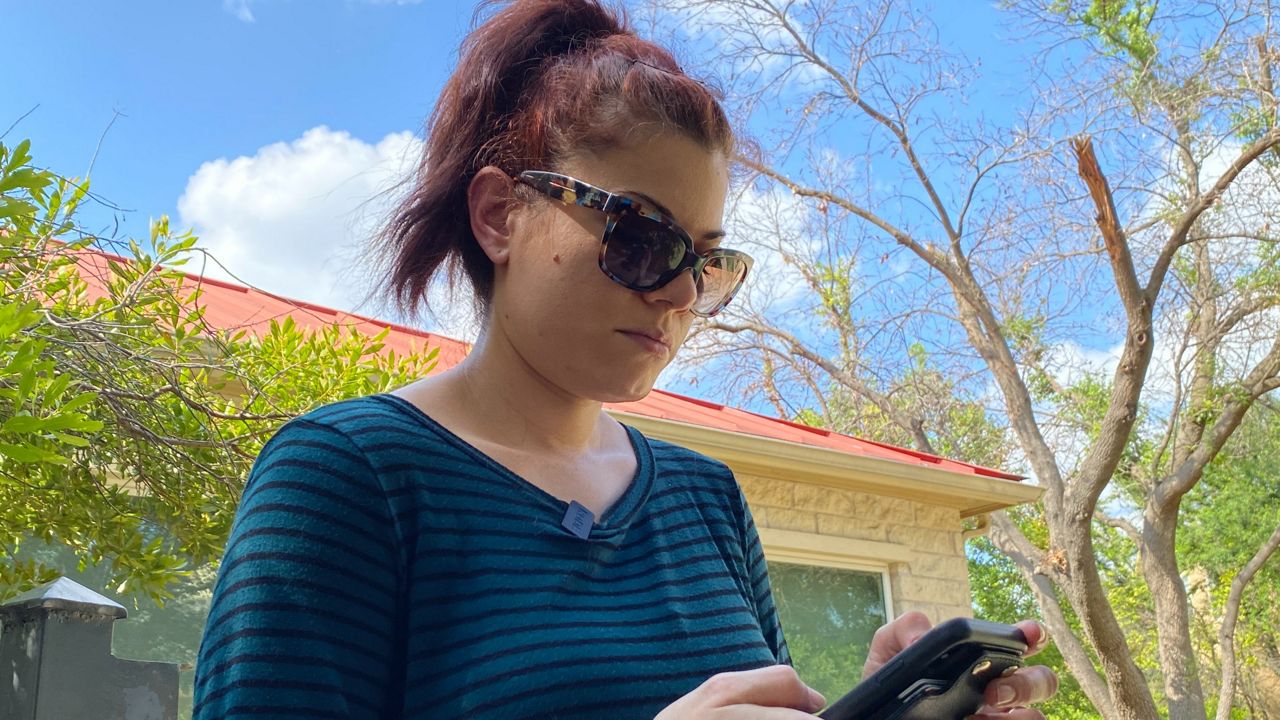AUSTIN, Texas — Long COVID is a condition where people diagnosed with COVID-19 have long-term symptoms. The symptoms can range anywhere from brain fog and fatigue to shortness of breath. For Austin resident Janna Cruz, the COVID-19 vaccine was the solution.
Cruz takes the elevator to the parking garage at St. David’s Hospital in Austin at the end of another work day. She’s a supply chain technician. Cruz got the job in May after being out of work for more than a year.
“The industry I was in was decimated during the shutdowns and I don’t want to experience anything like that ever again. So I decided to transition to an industry I knew would always need people,” Cruz said.
Her journey to find work was complicated when she contracted COVID-19 in March of 2020. Cruz eventually tested negative, but some of her symptoms persisted.
“I had episodes where my heart would race for no reason. I know a lot of people have this symptom and doctors will chalk it up to anxiety, but it is way different than anxiety,” said Cruz.
She spent much of her time during the pandemic in her apartment with her husband and two cats. Her only outlet was a support group online.
“At the height of everything, I was on it constantly all day, checking for new posts, checking comments, posting things. Just reaching out when I needed help,” said Cruz.
Cruz got her COVID-19 vaccine and said everything seemed to go away.
“I think it gave me the antibodies I needed to fight off whatever was left in my system. There were certain symptoms I had that would not go away that eventually did go away about two weeks after my second dose,” Cruz said.
Dr. Jason Bowling, associate professor of infectious diseases at UT Health in San Antonio, said there are signs that the vaccine can help people still struggling months after contracting COVID-19.
“We need more studies. They’re doing studies right now because there are unfortunately a lot of people with long COVID. It doesn’t appear that everybody has that benefit. The good news is that people don’t seem to have a lot of problems receiving the vaccine either,” said Dr. Bowling.
Dr. Bowling said more information is needed to figure out why people get those long lasting symptoms after having COVID. He said one thing is for sure: get the vaccine.
“Even if you’ve had a COVID infection before, you may have some antibodies from that infection. But what we’re seeing in this delta variant which is more transmissible is that you are still at risk for getting re-infected. There may be a benefit. You may see some benefit in your long COVID symptoms as well,” said Dr. Bowling.
Cruz is happy to take walks around her apartment complex again. Physical activity wasn’t a possibility that long ago.
“I checked my phone because I wanted to see how many steps a day I walk now. I average around 12,000 steps a day at work. It compared my average to last year and last year I averaged 500 steps a day,” said Cruz.
She checked in with her support group and wanted to give encouragement to anyone still dealing with long COVID.
“There is hope and light at the end of the tunnel. Everybody works on their own timeline,” said Cruz.
This timeline is one that Cruz is happy to see come to an end for her COVID journey.



